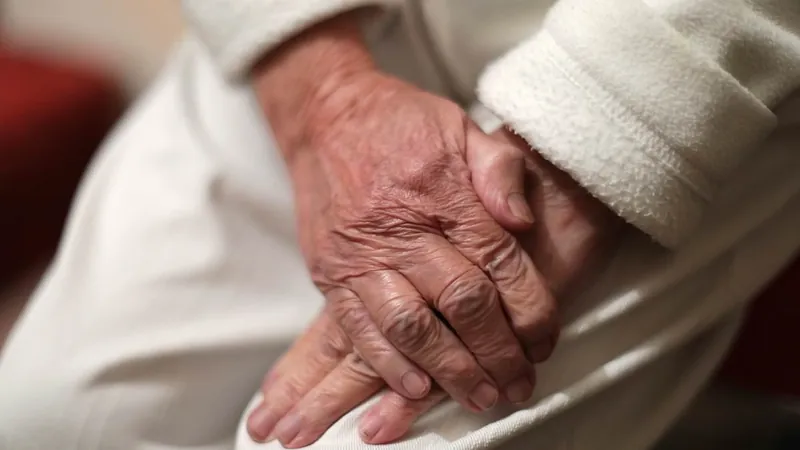
Revolutionary Study: Common Blood Pressure Medication Could Transform Lives of Parkinson's Patients
2024-12-29
Author: Wei
A groundbreaking study has revealed that a widely-prescribed medication for high blood pressure could significantly relieve tremors for the hundreds of thousands suffering from Parkinson's disease. This exciting development offers new hope where traditional treatments have often fallen short.
Parkinson's disease, a progressive neurodegenerative disorder, presents a myriad of challenges for sufferers, with tremors affecting up to 90% of patients. These involuntary shakes, which commonly disrupt the hands, jaw, and legs, may not always be debilitating but can severely impact everyday activities like shaving, dressing, and writing, causing frustration and embarrassment.
The conventional treatment for Parkinson's, primarily consisting of levodopa, is not a universal solution, particularly in high-stress situations. Research indicates that levodopa fails to curb tremors in 40% of patients during stressful moments, leaving many feeling hopeless.
In an innovative approach, researchers from Radboud University in the Netherlands administered propranolol, a beta blocker traditionally used to manage high blood pressure, to Parkinson’s patients. Using advanced MRI scans to monitor brain activity, the results were astonishing: all 27 participants experienced a marked reduction in tremors, both at rest and during stressful times.
Dr. Rick Helmich, a neurology professor leading the study, elaborated on the findings, explaining, 'We understand that various abnormalities within the body's dopamine system contribute to tremors. Our research suggests that the stress hormone noradrenaline acts as an amplifier, intensifying tremors in the brain’s movement areas. By inhibiting this effect, propranolol can alleviate these distressing symptoms.' This discovery opens the door for an alternative approach to managing Parkinson's tremors.
Propranolol is also known for treating irregular heart rhythms and has proven effective against essential tremor—a condition where patients experience tremors without other neurological symptoms. However, caution is advised, as the medication can lower blood pressure. It is generally recommended for patients for whom traditional treatments like levodopa fall short.
In addition to pharmacological interventions, Dr. Helmich is exploring lifestyle modifications that could ease Parkinson's symptoms. 'It doesn’t take much to induce a stress response that heightens tremors. Simple concerns, such as whether you locked the front door, can trigger significant shaking,' he noted. 'We are currently investigating whether mindfulness practices might have a positive impact on regulating the stress response and consequently lessen the tremors associated with Parkinson's.'
As this study unfolds, it highlights the potential of adapting existing medications to improve the quality of life for patients grappling with Parkinson's disease. With further research, these findings promise to revolutionize the treatment landscape, paving the way for more effective management of this challenging condition.



 Brasil (PT)
Brasil (PT)
 Canada (EN)
Canada (EN)
 Chile (ES)
Chile (ES)
 Česko (CS)
Česko (CS)
 대한민국 (KO)
대한민국 (KO)
 España (ES)
España (ES)
 France (FR)
France (FR)
 Hong Kong (EN)
Hong Kong (EN)
 Italia (IT)
Italia (IT)
 日本 (JA)
日本 (JA)
 Magyarország (HU)
Magyarország (HU)
 Norge (NO)
Norge (NO)
 Polska (PL)
Polska (PL)
 Schweiz (DE)
Schweiz (DE)
 Singapore (EN)
Singapore (EN)
 Sverige (SV)
Sverige (SV)
 Suomi (FI)
Suomi (FI)
 Türkiye (TR)
Türkiye (TR)
 الإمارات العربية المتحدة (AR)
الإمارات العربية المتحدة (AR)